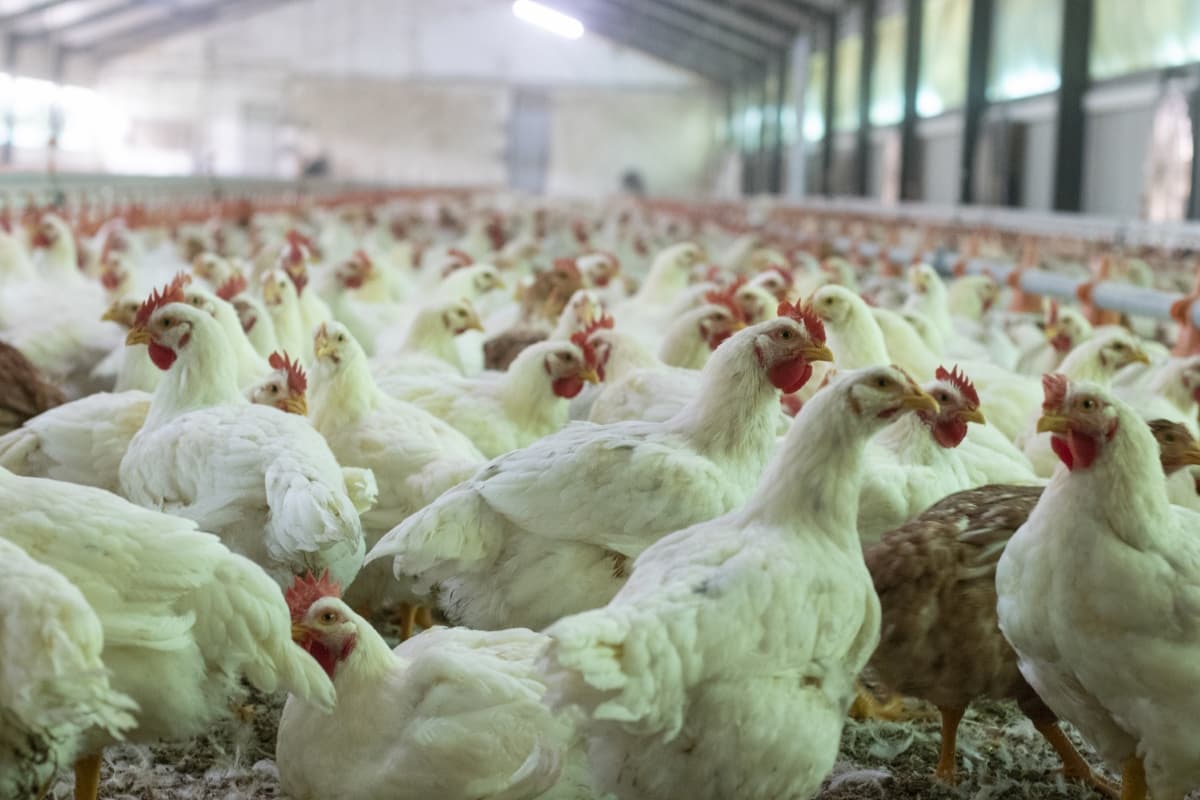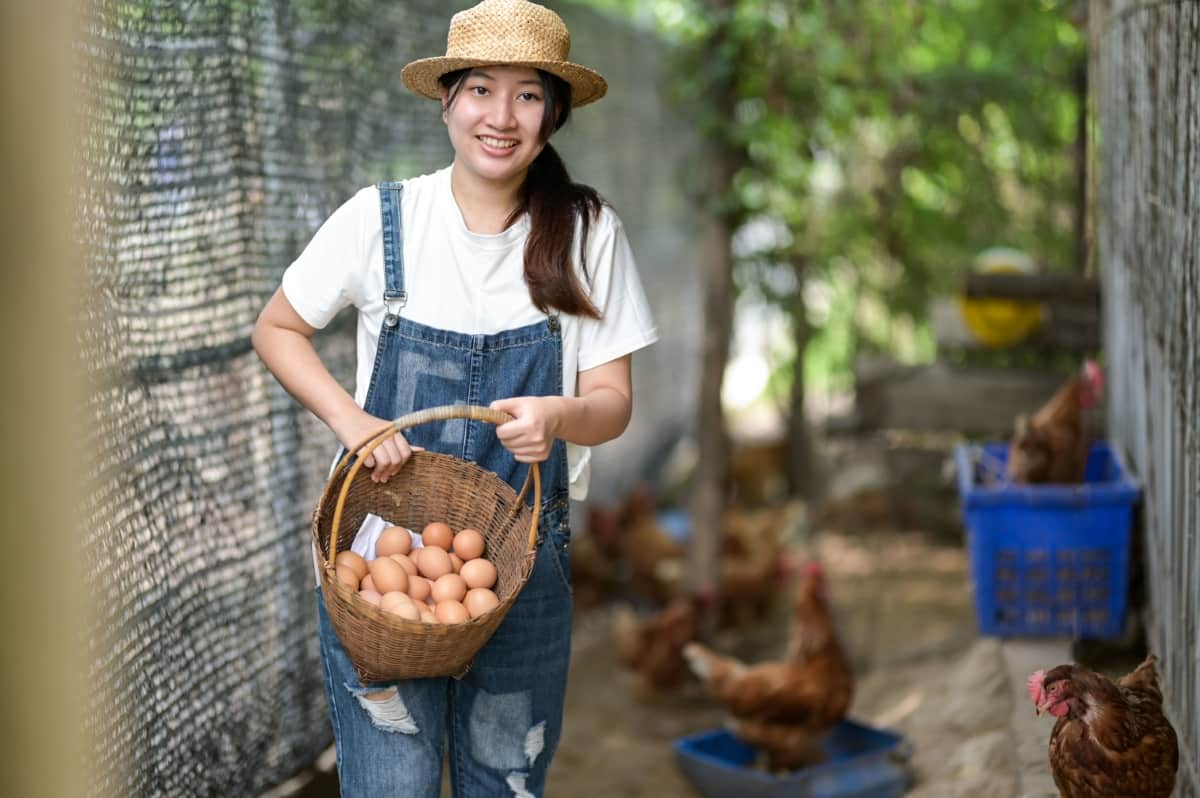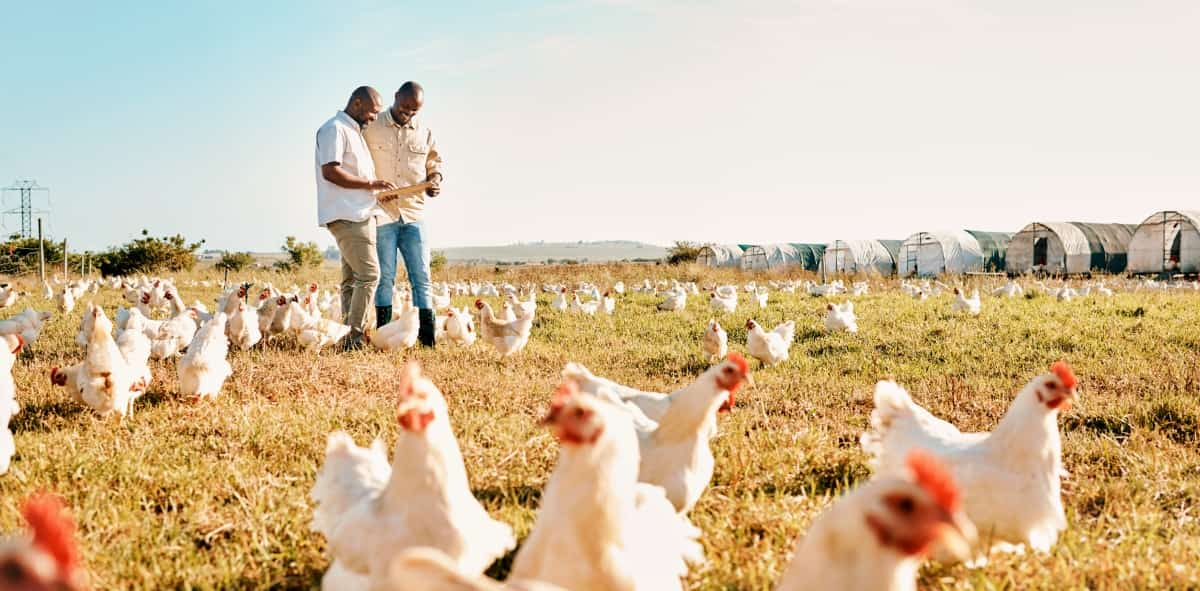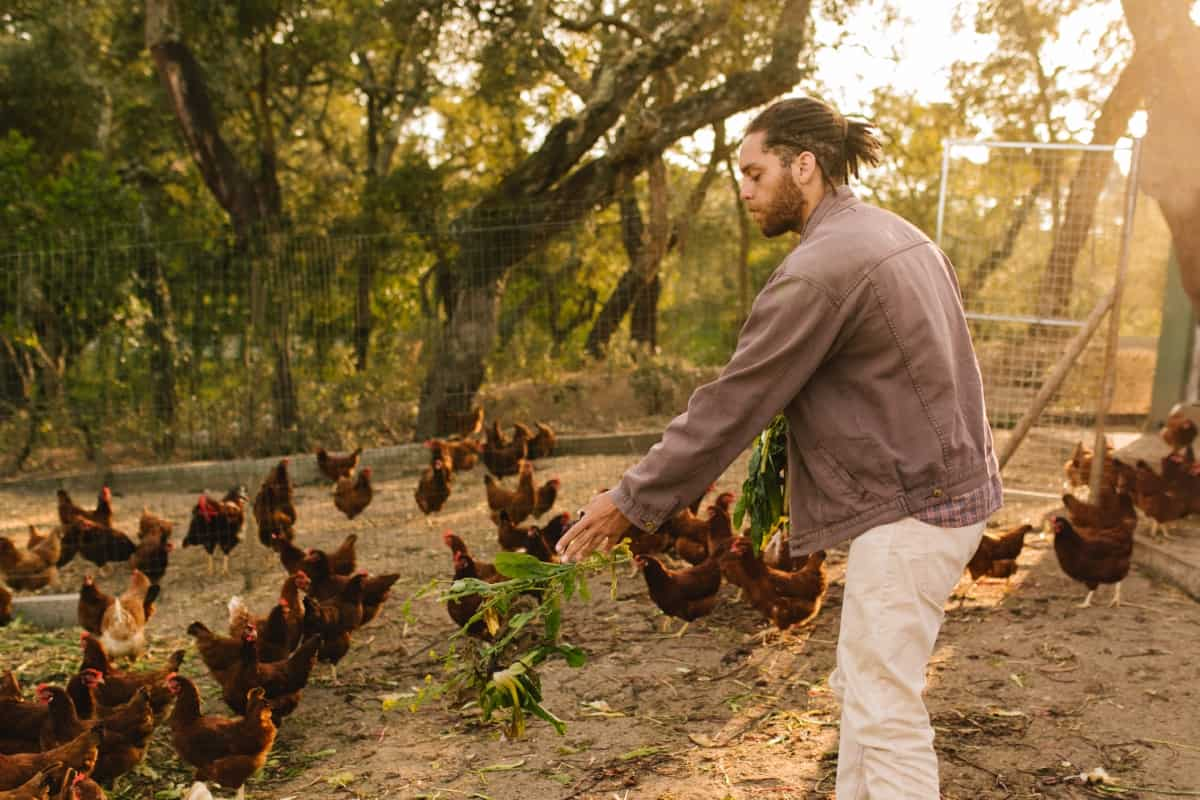In the diverse world of agriculture, chicken farming stands out as a versatile and profitable venture, offering a variety of business models tailored to different market demands and farmer capacities. From the intensive production systems of broiler and layer chicken farming to the more sustainable and ethically inclined practices of free-range and organic poultry keeping, there’s a niche for every aspiring farmer.
Other facets of this industry include hatchery operations, feed production, chicken processing and packaging, and the intricate science of chicken breeding and genetics. Each style of chicken husbandry carries its distinct obstacles and benefits, requiring a profound comprehension of avian health, disease control, dietary needs, housing infrastructure, and biosecurity protocols.
For those keen on participating in the local food scene, backyard chicken rearing and the production of farm-to-table poultry goods provide opportunities to cater to communities in search of freshly laid eggs and humanely sourced meat products. With the right approach, investment in poultry farming can yield substantial profits while contributing to food security and sustainability.
10 Types of Chicken Farming Businesses
Broiler Chicken Farming
Setting Up Your Broiler Farm
Starting a broiler farming business requires careful planning, from selecting a suitable location to designing efficient chicken coops that meet the birds’ needs while optimizing space and resources. Key considerations include ensuring adequate ventilation, temperature control, and space to support the rapid growth of broiler chickens, aiming for optimal health and productivity.
Broiler Feed and Nutrition
Feed and nutrition are critical in broiler farming, with specialized diets formulated to promote fast growth and healthy development. Broiler feed is rich in proteins and energy, tailored to meet the nutritional demands of these fast-growing birds, ensuring they reach market weight efficiently and healthily.
Health Management in Broilers
Health management in broilers involves regular monitoring for signs of illness, maintaining strict biosecurity measures to prevent disease outbreaks, and implementing vaccination programs. Effective health management ensures high productivity and minimizes losses, making it a cornerstone of successful broiler farming.

Layer Chicken Farming
Housing for Layer Chickens
Housing for layer chickens must provide a comfortable environment that supports egg production, with features like nesting boxes for egg laying and perches for natural behaviors. Good housing design also includes systems for efficient egg collection and waste management, contributing to overall farm efficiency.
Egg Production and Collection
Egg production strategies in layer farming focus on maximizing yield while maintaining egg quality. This involves careful breed selection, lighting management to simulate optimal day lengths, and meticulous egg collection practices to ensure eggs are gathered cleanly and efficiently.
Layer Nutrition and Health Care
Layer nutrition and health care are tailored to support egg production, with diets rich in calcium and other minerals essential for eggshell formation. Healthcare practices include regular health checks, parasite control, and vaccination against common poultry diseases, ensuring the longevity and productivity of the flock.
In case you missed it: Ultimate Guide to Iowa Blue Chicken: Discover from Breed Profile to Diet and Care

Free-Range Chicken Farming
Benefits of Free-Range Farming
Free-range chicken farming promotes natural behaviors and welfare, allowing chickens to forage, peck, and roam freely, leading to healthier birds and higher-quality products. This approach appeals to consumers interested in animal welfare and sustainable farming practices.
Managing Free-Range Spaces
Managing free-range spaces involves providing secure, spacious outdoor areas that protect chickens from predators while offering diverse foraging opportunities. This includes rotating grazing areas to maintain ground health and prevent overuse, ensuring the sustainability of the free-range system.
Free-Range Chicken Health Practices
Health practices in free-range systems focus on preventive care, including natural pest control methods and regular health monitoring to quickly address any issues. The open environment requires vigilant biosecurity measures to minimize disease risks while supporting the overall well-being of the flock.
In case you missed it: How to Raise Baby Chicks: The First 8 Weeks Of Raising Baby Chickens

Organic Chicken Farming
Certification and Standards for Organic Farming
Organic chicken farming requires adherence to strict standards and certification processes that govern everything from feed to farm management practices. Certification ensures that organic farms meet national and international guidelines for organic production, enhancing market value and consumer trust.
Organic Feed and Supplements
Organic feed and chicken supplements are free from synthetic additives and GMOs, often incorporating a mix of organic grains, proteins, and greens. This natural diet supports the health and productivity of organic flocks while complying with organic farming standards.
Pest and Disease Control in Organic Farming
Pest and disease control in organic farming relies on natural and approved methods, avoiding synthetic chemicals. Strategies include using beneficial insects, rotational grazing, and natural remedies to manage pests and diseases, ensuring the organic integrity of the farm.
Backyard Chicken Farming
Choosing the Right Chicken Breeds
Backyard poultry keeping starts with selecting breeds that suit the keeper’s goals, whether for egg production, meat, or companionship. Hardy, adaptable breeds that thrive in smaller spaces are ideal for backyard setups, offering a rewarding experience for the farmer.
Coop Design and Maintenance
The primary focus in designing and maintaining coops for backyard farms is ensuring comfort, safety, and easy maintenance. Coop designs typically allocate 3-4 square feet per chicken indoors and 8-10 square feet in outdoor runs. Proper maintenance includes regular cleaning and pest control to keep chickens healthy and productive.
Sustainable Practices for Backyard Farms
Sustainable practices for backyard chicken farms include composting manure, implementing water-saving measures, and repurposing food scraps as chicken feed. These practices reduce waste and inputs, making backyard farming an eco-friendly venture.
In case you missed it: Creative and Practical DIY Chicken Coop Roof Ideas for Every Backyard

Hatchery Operations
Egg Incubation and Hatching
Egg incubation and hatching in a poultry hatchery business involve carefully controlling temperature, humidity, and ventilation to mimic natural conditions, ensuring high hatch rates. Monitoring and turning eggs are crucial for uniform development and successful hatching.
Chick Care and Management
Chick care and management post-hatching involve providing a warm, safe environment, proper nutrition, and early health interventions to ensure strong, healthy development. This includes temperature-controlled brooding areas and starter feeds formulated for young chicks.
Equipment and Facility Requirements
Equipment and facility requirements for hatcheries include incubators, brooders, feeders, and waterers designed for efficiency and hygiene. Proper facility design also incorporates biosecurity measures to protect against disease and contamination, ensuring the health and quality of hatchlings.
Poultry Feed Production
Formulating Poultry Feed
Creating poultry feed requires carefully adjusting the levels of proteins, carbohydrates, fats, vitamins, and minerals to fulfill the precise nutritional requirements of various poultry breeds and growth phases. Quality feed supports optimal growth, health, and productivity in poultry operations.
Setting Up a Feed Mill
Setting up a feed mill for chicken feed production requires investment in equipment for grinding, mixing, and pelletizing feed ingredients. A successful feed mill also demands nutrition knowledge, quality control, and efficient production processes.
Quality Control in Feed Production
Quality control in feed production ensures that poultry feed meets specified nutritional standards and is free from contaminants. This involves regular testing of ingredients and finished products, maintaining clean production facilities, and adhering to industry regulations.
Chicken Processing and Packaging
Slaughterhouse Management
Slaughterhouse management in a chicken processing business involves humane handling, efficient processing, and health and safety standards compliance. Effective management ensures high-quality products and minimizes waste, contributing to the profitability and sustainability of the business.
Processing Techniques for Chicken
Processing techniques for chicken include slaughtering, plucking, eviscerating, and chilling, with each step carefully controlled to ensure product quality and safety. Advanced processing methods also allow for the production of value-added products, expanding market opportunities.
Packaging and Distribution Strategies
Packaging and distribution strategies for chicken products focus on maintaining freshness, extending shelf life, and meeting consumer preferences. Efficient logistics and adherence to food safety regulations are key to successful market delivery and customer satisfaction.
Chicken Breeding and Genetics
Breeding Strategies for Improved Traits
Chicken farming breeding techniques seek to enhance characteristics like growth speed, egg yield, and resistance to diseases. Selective breeding and genetic management techniques are used to develop breeds that meet specific market demands and enhance farm profitability.
Genetic Management and Preservation
Genetic management and preservation involve maintaining diverse gene pools and preventing inbreeding, ensuring poultry breeds’ long-term health and viability. This includes careful record-keeping, genetic testing, and strategic breeding plans.
Hybrid Chicken Development
Hybrid chicken development combines desirable traits from different breeds to produce birds that excel in specific aspects, such as feed efficiency or meat quality. Hybrids are often used in commercial operations for their superior performance and consistency.
Poultry Health and Disease Management
Preventive Healthcare Practices
Preventive healthcare practices in poultry farming include vaccination, parasite control, and management of stress factors to prevent disease outbreaks. A proactive approach to health care reduces the need for medical treatments and supports flock productivity.
Disease Diagnosis and Treatment
Disease diagnosis and treatment in poultry require vigilance for signs of illness, prompt isolation of affected birds, and appropriate medical interventions. Access to veterinary services and knowledge of common poultry diseases are essential for effective disease management.
Biosecurity Measures on Poultry Farms
Biosecurity measures on poultry farms protect against the introduction and spread of diseases. This includes controlling access to poultry areas, disinfecting equipment and facilities, and implementing strict sanitation protocols, ensuring the health and biosecurity of the flock.
Conclusion
Venturing into chicken farming offers diverse opportunities for profitability, from broiler and layer production to organic and free-range practices. Success hinges on comprehensive nutrition, health, breeding, and biosecurity management, ensuring sustainable and profitable poultry enterprises.
- Feed Your Flock for Less: Top 10 Tips to Save on Chicken Feed
- Ultimate Guide to Ossabaw Island Hog: Breeding, Raising, Diet, and Care
- Hatching Answers: The Top 10 Reasons Your Chickens Aren’t Laying Eggs
- Eggs and Economics: Breaking Down the Cost of Raising Backyard Chickens
- Defend Your Greens: Proven Methods to Keep Iguanas Out of Your Garden
- Ultimate Guide to Cinnamon Queen Chicken: A Comprehensive Guide for Beginners
- Ultimate Guide to California Tan Chicken: Breeding, Raising, Diet, Egg-Production and Care
- Ultimate Guide to Marsh Daisy Chicken: Breeding, Raising, Diet, and Care
- 10 Types of Chicken Farming Businesses You Can Start for Profits